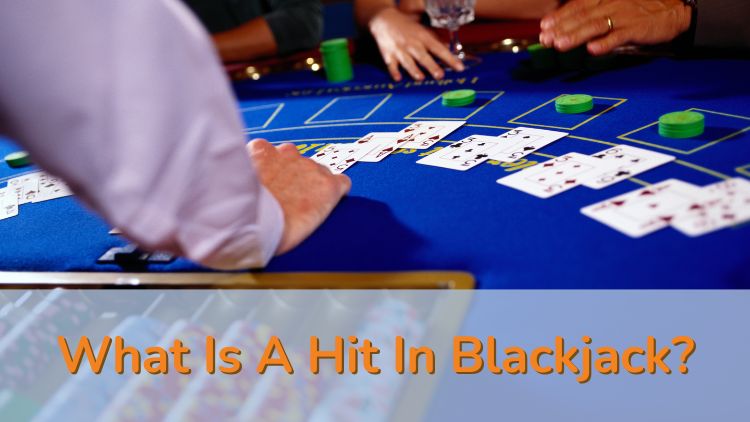
Blackjack is a popular card game found in almost every casino, both online and in-person. If you're new to the game, you might find some of the terms confusing. One of the most essential terms to understand is "hit".
In blackjack, a "hit" means asking for another card from the dealer on your turn. You usually request a hit if you want to try improving your hand without going over 21. Getting closer to 21 can improve your chances of winning, but be careful because if your total goes over 21, you lose the round.
Knowing when to hit and when to stop is a fundamental part of blackjack strategy. In this blog post, we'll explore what it means to hit in blackjack, when to do it, and how it can affect your game. Stay tuned for simple tips that can help you make more informed decisions at the table.
What Does Hit Mean In Blackjack?
In blackjack, you play against the dealer with the goal of having a hand value closer to 21 than theirs without going over. To "hit" means to ask the dealer for another card in an attempt to improve your hand.
If you choose to hit, the dealer gives you one more card. You can continue asking for cards until you decide to stop or until your total hand value exceeds 21. If your total goes over 21, this is called "busting", and you automatically lose the round.
Hitting is a decision you make based on the value of your current hand and the dealer's visible card. For example, if you have a low total, like 12 or 13, you might decide to hit in hopes of getting closer to 21. However, if your hand is already high, like 18 or 19, hitting could be risky because you are close to 21, so the majority of cards that could appear are likely to cause you to bust.
Understanding when to hit and when to hold (or "stand") based on your hand and the dealer's up card is one of the critical foundations of blackjack. With practice, you can get better at making these decisions and improving your confidence in your decision-making skills in-game.
When Should You Hit In Blackjack?
Knowing when to hit in blackjack can make a big difference in your game versus just playing blindly. The decision to hit often depends on the current value of your hand and the dealer's visible card.
If your hand totals between 12 and 16, and the dealer's card is strong (like a 7, 8, 9, 10, or Ace), it is usually a good idea to hit. This is because the dealer has a higher chance of beating your hand.
On the other hand, if your hand totals between 17 and 21, it's generally safer to stand. Hitting with a high-value hand increases the risk of going over 21, which leads to an automatic loss.
For hands totalling between 5 and 11, hitting is almost always recommended since you won't bust with just one more card. In fact, it's beneficial for getting you closer to that target of 21.
Remember, practice makes perfect. The more you play and understand the game, the better you will become at deciding when to hit and when to hold.
What Is The Difference Between Double & Hit In Blackjack?
In blackjack, both "double" and "hit" involve getting additional cards, but they work in different ways and have different impacts on your game.
A "hit" is when you ask the dealer for one more card to add to your hand. You can hit as many times as you like, as long as you don't go over 21.
On the other hand, "double" or "double down" is a more specific move. If you double down, you double your initial bet and receive just one more card. After this, you cannot receive any more cards.
Doubling down can be a strategic move if you believe that one more card will give you a strong enough hand to face the dealer, especially if the dealer's visible card is weak. It allows you to wager more for the chance to potentially win more money, but it also carries more risk since you only get one additional card.
Understanding when to hit and when to double down is key to effective blackjack strategy. Knowing the differences between these moves can help you make better decisions and play more confidently. However, it's important to remember that there is no telling what cards may be drawn, so winning is never assured. Always gamble responsibly and set realistic expectations.
